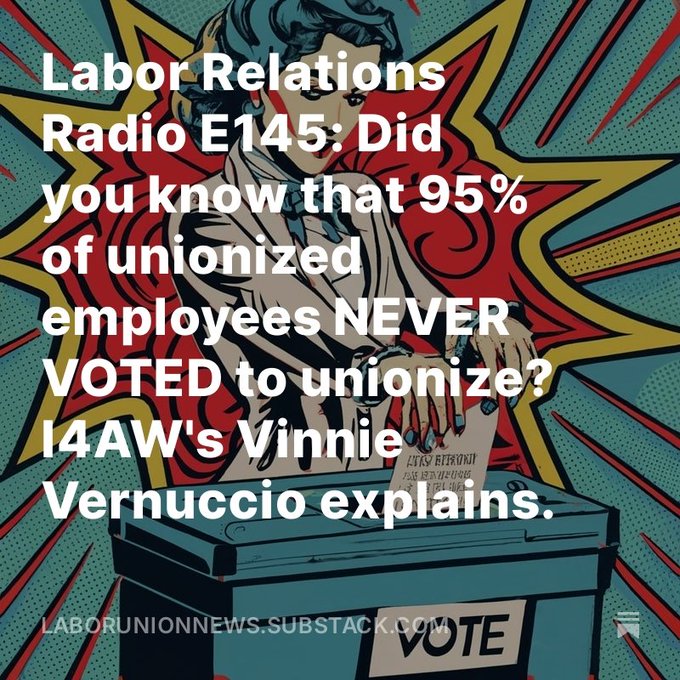Posts tagged recertification election
Act 10, Scourge of Wisconsin Teachers, Faces Uncertain Future in Court
March 4, 2025 // According to the Bureau of Labor Statistics, the proportion of union members in Wisconsin’s workforce fell by nearly half, from 14.2% to 7.4%, between 2010 and 2023 (since that figure includes workers from all sectors, the drop for government employees is likely much steeper). A report from the Wisconsin Institute for Law & Liberty, a right-leaning think tank, showed that the total number of unions holding annual recertification votes across the state declined from 540 in 2014 to 369 in 2018. The largest teachers’ union in the state, the Wisconsin Education Association Council, experienced a dizzying loss of manpower and organizing heft. A 2019 study conducted by a pair of researchers at the University of Wisconsin found that WEAC was forced to restructure and cut its staffing by about two-thirds. The retrenchment was made necessary by a freefall in the collection of dues, the payment of which was made voluntary by Act 10. The loss of paid organizers could be offset, in part, by the efforts of teacher volunteers. But the union had no ready replacement for the millions of dollars in government relations funds that had suddenly evaporated; WEAC went from being one of the biggest lobbying forces in Madison to a second-tier player virtually overnight.

UTAH, Opinion: Republicans Need to Learn Government Unions Can’t Be Trusted
March 3, 2025 // On Feb. 14, Gov. Spencer Cox signed a law I sponsored banning public-sector collective bargaining. This makes Utah the best state in the nation for protecting taxpayers and ensuring that government employees can negotiate their own employment terms. But this victory came only after fruitless attempts to work with government unions—efforts that exposed their pattern of saying one thing while doing another. In early 2024, I introduced a bill that would have required public-sector unions to hold regular recertification elections. As I argued at the time, unions representing teachers, firefighters and police should have to prove continuously that they represent a majority of workers. Taxpayers, too, have a stake: If a union doesn’t speak for most employees, why should the rest of the state be on the hook for its demands?

Labor Relations Radio E145: Did you know that 95% of unionized employees NEVER VOTED to unionize? I4AW’s Vinnie Vernuccio explains.
September 4, 2024 // As Americans, every two, four, or six years, we head to polls to cast our ballots for who we want to represent us. For unionized workers in the private sector, the vast majority never voted to unionize. According to a new study [in PDF] by the Institute for the American Worker (I4AW), 95 percent of private sector union workers under the National Labor Relations Act (NLRA) are represented by a union they have never voted for.
Union truckers circle Capitol to protest labor legislation
February 23, 2024 // SF 2374 “is nothing more than a technical cleanup to legislation passed in 2017,” Dickey said in his statement. “Last year, 41% of Iowa public sector workers that had union representation did not have a voice due to a loophole in the legislation passed in 2017. If the public sector employer and the union are following the law, nothing will change for them.” The legislation has cleared the Iowa Senate’s Workforce Committee, which Dickey chairs. It is eligible for debate by the full Iowa Senate. It must also be approved by the Iowa House and signed by Gov. Kim Reynolds before it would become law. Rep. Dave Deyoe, a Republican from Nevada who chairs the House’s Labor and Workforce Committee, said lawmakers have been aware of the lack of recertification elections by bargaining units for years, and that it has been a concern for Republicans who passed the 2017 law. Deyoe said it will be up to Republican House leaders whether to take up the bill if it is passed out of the Senate.
Commentary: America’s Third Largest Teachers’ Union Heads for the Largest Decertification Vote in History
January 2, 2024 // On Dec. 19, UTD President Karla Hernandez-Mats confirmed the union hadn’t been able to persuade 60 percent of the 30,000 teachers it officially represents to become dues-paying members. A few days earlier, she claimed the union had increased its numbers to just more than 58 percent, including 800 new members. What she didn’t explain was that the union had to kick out all the substitute teachers from the bargaining district in order to increase their membership percentage, and still fell short. Hernandez-Mats declined to disclose the final tally. The 60 percent requirement was imposed under Senate Bill 256, the most aggressive state labor reform bill since Wisconsin’s Act 10 under then-Gov. Scott Walker. SB 256 also prohibits public agencies like school districts from deducting dues directly from employees’ paychecks on behalf of the union representing their bargaining unit.
Op-Ed: Will Miami Teachers Free Themselves from Union Shackles?
November 8, 2023 // UTD claims that its current membership stands at 57 percent of the Miami-Dade educator workforce, up from 52 percent this summer. However, this increase in membership — assuming there really is one — doesn’t indicate the union has successfully recruited new members or won recommitments from old ones. Instead, UTD has been expelling substitute teachers from the bargaining unit in an attempt to swing the percentages back in its favor. The union’s membership numbers have been trending in the opposite direction for years, which presented an opportunity for the Freedom Foundation. But any disenchantment the teachers have with the union is its own fault. If UTD ultimately dies, its wounds will be self-inflicted.

Florida unions struggle to reenroll members
September 17, 2023 // Recertification elections required by the new law would be the first time most union members have a direct say in who their representative is. Already, dozens of unions are expected to face recertification elections under the new requirements. AFFT reported that at least 42 Florida teachers unions are below the threshold, not including local unions like AFSCME Local 199 and CWA Local 3179.
